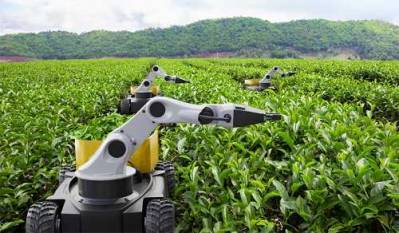
Throughout our AI journey in India, Google has strongly believed that solutions that address India’s most pressing challenges can also solve for the world. We are thrilled to announce today a measurable step forward that demonstrates this conviction. We are expanding our freely available agricultural model outputs as application programming interfaces (APIs)—Agricultural Landscape Understanding (ALU) API and Agricultural Monitoring & Event Detection (AMED) API—to support agricultural sustainability throughout the Asia-Pacific region. These APIs were initially developed to improve India’s agricultural resilience. Within a few short months of the India-first releases of these models, we are thrilled to begin providing trusted testers in Malaysia, Vietnam, Indonesia, and Japan with access to these APIs. The ALU and AMED foundational models leverage remote sensing and machine learning to provide the local ecosystem with insights that can help build cost-effective, simple and targeted agricultural solutions. The AMED API will provide crucial field-level insights on the most cultivated crops, as well as their sowing and harvest timelines at individual field levels, while the ALU API will identify fields, water bodies, and vegetation boundaries. Additionally, AMED API will actively refresh data approximately every 15 days, assisting in the detection of agricultural events in individual fields across a nation’s agricultural landscape. These models, taken as a whole, provide crucial data and insights that the agriculture ecosystem needs to build precision agriculture tools, allocate resources more effectively, and enhance farm management practices. Take a look at how these models have been deployed in India so far:
From policy planning to crop advisory to financial access, the Indian ecosystem continues to unlock a variety of use cases for these models to improve the local agri sector’s resilience. The Amnex-developed Krishi DSS integrated agri-insight and decision-making platform uses the ALU and AMED APIs to power advanced analytics for crop health monitoring, acreage estimation, irrigation advisories, and climate impact assessment. Krishi DSS is being developed by Amnex for the Department of Agriculture and Farmer Welfare of the Government of India. Policymakers and field officers will be able to make timely, well-informed decisions across districts, tehsils, and villages with these capabilities. Vassar Labs intends to incorporate the APIs into the fieldWISE platform and data stacks that it already has in place to provide an all-encompassing climate-smart agriculture platform. The integrations will enhance its existing solutions for various terrains and cropping patterns, including crop and field monitoring for agriculture departments, personalized advice on crop, irrigation, pest, and fertilizer management, as well as market and pricing dynamics for farmers, serving over one crore Indian farmers through multiple state projects. Sugee.io, which aims to democratize financial access for rural communities, is integrating insights from ALU API directly into its loan origination system towards improving efficiencies in the application process for the farmers, while also supporting the quality, reliability and compliance of agricultural loans for banks. Sugee also plans to use AMED API to advise credit monitoring and risk management, helping banks evaluate farm loan applications and monitor for event-based variations and repayment risks throughout the loan tenure.
Using the ALU and AMED APIs, the Council on Energy, Environment, and Water (CEEW) intends to create a first-of-its-kind high-resolution analysis that will assist in determining which regions stand to gain the most from crop diversification. CEEW will be able to conceptualize a new mechanism for providing farmers with direct, responsive, and differentiated income support to encourage them to grow crops that are healthier and better for the environment. Additionally, the models are being incorporated into CEEW’s Climate Data Platform, which will be made available as a digital public good for the purpose of directing specific state-level interventions. Our AI models’ use cases in India demonstrate that they are crucial starting points for massive change, paving the way for accurate, scalable, and data-driven solutions. A significant opportunity for APAC agriculture exists in the expansion of these AI models with an agricultural focus. Utilizing these models, we invite regional developers, researchers, and agribusinesses to collaborate with us to pioneer new, scalable solutions that improve farmer livelihoods, accelerate regional food resilience, and establish a new global standard for sustainable agriculture.
 Techosta Where Tech Starts From
Techosta Where Tech Starts From